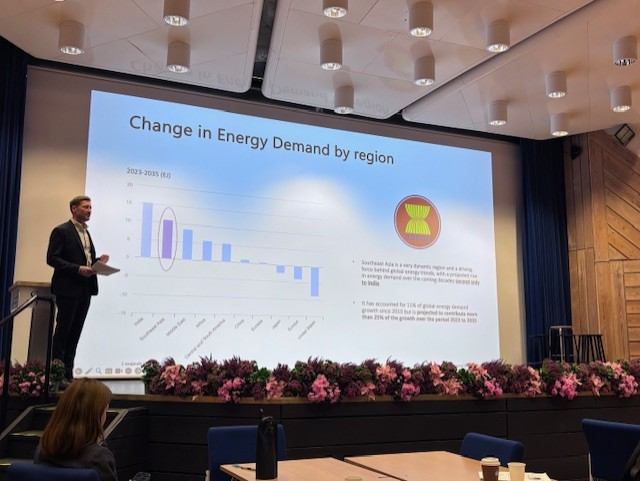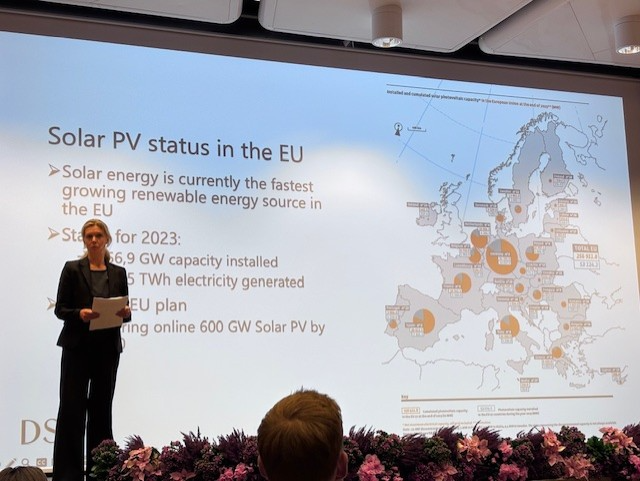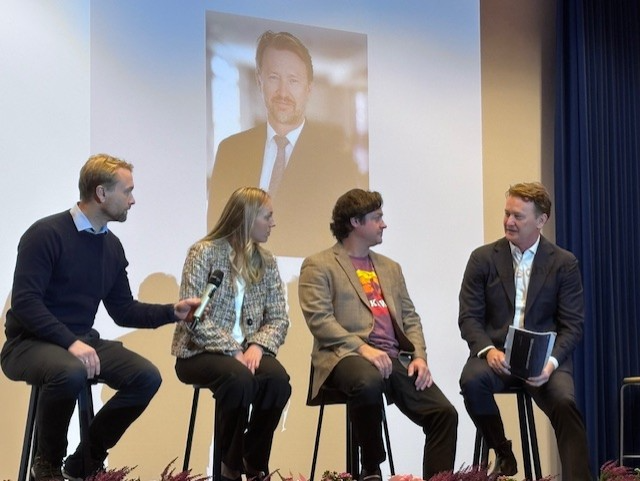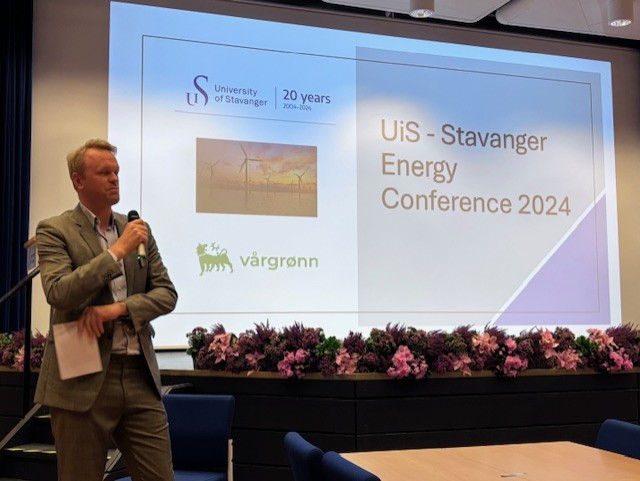The Stavanger Energy Conference 2024, hosted at the UiS Ullandhaug Campus, was an influential event that gathered industry leaders, academics, and policymakers to address the pressing challenges and opportunities in the energy sector. Over two days, attendees engaged in a series of insightful discussions led by a diverse group of experts, each bringing unique perspectives to the table.
The conference began with an inspiring keynote address by Stephen Bull, CEO of Vårgrønn. He highlighted the critical importance of sustainable innovation and the need for the energy sector to adapt to rapidly changing global demands. Bull’s address set a forward-looking tone, emphasizing the urgency of transitioning to renewable energy sources and enhancing technological capabilities to meet environmental goals.

The first session delved into the political risks facing Norway’s energy sector. Featuring speakers such as Tom Christer Nilsen from the Bergen Chamber of Commerce and Industry, Øyvind Ravna from UiT Arctic University of Norway, Grete Møgster from Utsira Offshore Wind Center, and Hanna Cecilie Brænden from NIM, the panel provided a comprehensive analysis of the regulatory and geopolitical factors influencing energy policies. Moderator Kristoffer Svendsen guided the discussion towards potential strategies for mitigating risks, fostering a robust dialogue on how Norway can maintain its leadership in the global energy market while navigating complex political landscapes.
In the afternoon, attention shifted to the economic aspects of offshore wind investments. Even Vinje from Menon Economics, Tamara Bjørnbekk Šolaja from Equinor, Radmil Kandra from Gard, Per Lund from Odfjell Oceanwind, and Christian Fredrik Michelet from Schjødt shared their insights on maximizing returns from offshore wind projects. They discussed cutting-edge technologies, investment strategies, and risk management techniques that could drive profitability in this burgeoning sector. Moderator Adnan Vejzović facilitated a lively discussion, highlighting successful case studies and innovative approaches that have proven effective in optimizing offshore wind ventures.

Day two opened with a focus on ESG (Environmental, Social, and Governance) requirements and the integration of AI in the energy industry. Speakers Josh Seidel from Databricks, Marthe Ydalus from Aker Solutions, Simen Malmin from Nysnø, and Erlend Brun Bakken from Schjødt discussed how AI can revolutionize ESG practices by improving data accuracy, compliance, and operational efficiency. They explored the potential of AI to enhance transparency and accountability, crucial elements for building trust with stakeholders and achieving sustainable growth. Kristoffer Svendsen moderated this session, ensuring a balanced discussion on both the opportunities and challenges of implementing these technologies.
The final session of the conference addressed investment opportunities in solar energy, battery storage, and transmission. Led by Urosh Tomovich, a management consultant specializing in North American markets, the panel included Mari Kjellevold Brygfjeld from Dæhlin Sand Advokatfirma, Elizabeth Arnold from AFI Solar Capital Solutions LLC, Rudi Jansen Van Vuuren from Vietnam Norsk Renewables, and Eric Butter from Intl Farming. They examined global market dynamics, highlighting the potential for growth in various regions such as Scandinavia, Europe, Latin America, and Vietnam. Discussions centered around the importance of diversifying energy portfolios, identifying emerging markets, and leveraging technological advancements to improve efficiency and reduce costs.

Closing remarks by Ola Kvaløy, Dean of the UiS School of Business and Law, encapsulated the essence of the conference. He emphasized the necessity of strategic collaboration, innovation, and policy alignment to drive the energy sector toward a sustainable future. Kvaløy highlighted the key takeaways from the event, urging participants to continue fostering partnerships and sharing knowledge to overcome challenges and seize opportunities in the evolving energy landscape.
Overall, the Stavanger Energy Conference 2024 served as a vital platform for exchanging ideas, building networks, and setting the agenda for future advancements in renewable energy and sustainability. Attendees left with a renewed sense of purpose and actionable insights to implement in their respective fields, reinforcing the conference’s role as a catalyst for positive change in the global energy sector.

Kristoffer Svendsen